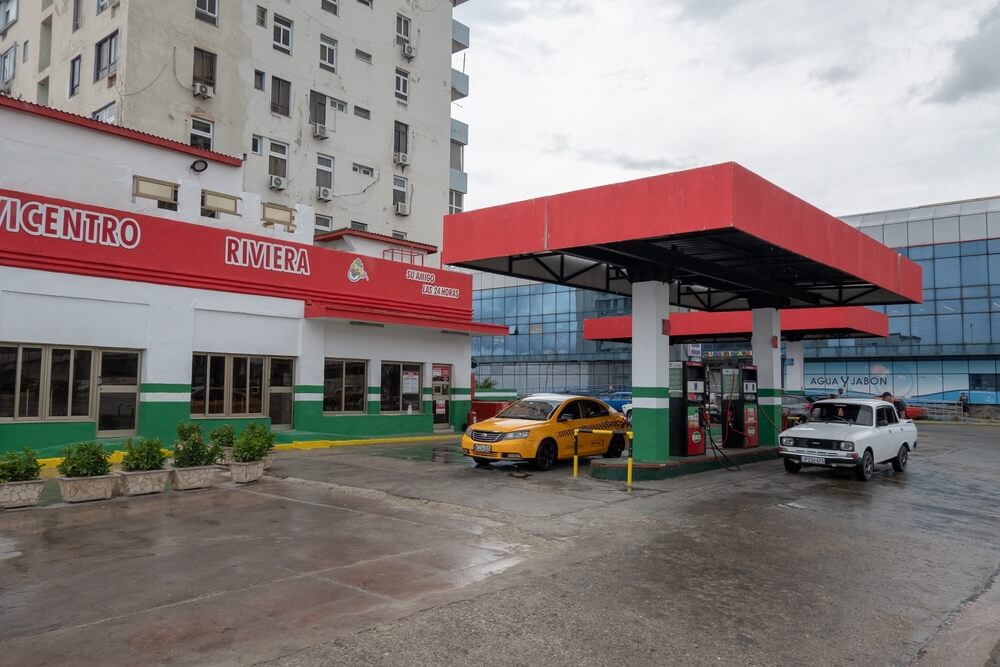The authoritarian Cuban authorities have been attempting to react calmly to the latest citizen protests due to the difficult economic situation. However, their calm and calls for talks are merely an illusion.
Memories of the July 2021 demonstrations, the most massive outpouring of discontent since Cuba fell under communist rule, are still fresh.
The state then used brutal force to quell protests by thousands of Cubans desperate for food, electricity and vaccine shortages amid the COVID-19 pandemic, arresting more than 1,500 people.
The echo of these protests is still present today, as hundreds of desperate people demonstrated in Santiago, the country's second-largest city, and a few other places in the interior.
The authorities did not use force against the protestors, most likely because they were in small numbers, even though heavy security forces kept an eye on the street protests.
President Miguel Díaz-Canel acknowledged the presence of "several people" on the streets as a source of self-encouragement while emphasising the state's commitment to address citizens' concerns peacefully.
However, as in past such instances, he accused the US of being behind the protests, instigating them with the purpose of destabilising the country. This suggests that the traditional narrative regarding the "enemies of the revolution" meddling is no longer plausible.
The most challenging days since the revolution
Cuba's economic problems are the most severe since the revolution, and since the 2021 protests, they've only gotten worse.
"We want food", "Power and food", shouted the protesters in Santiago, just like 3 years ago. However, the chances of getting what they want are even smaller today.
Power outages on the entire island are daily, often lasting up to 18 hours. Electricity supply seems like an unsolvable problem for Cuba, which gets more than 90% of its energy from oil, fuel oil, and even crude oil power plants.
A significant budget deficit and international isolation mean that Cuba cannot provide enough fuel for power plants or public transportation
A significant budget deficit and international isolation mean that Cuba cannot provide enough fuel for power plants or public transportation, which has been reduced and, in some cases, even abolished.
The principal supplier of oil for the last 2 decades, Venezuela, is also facing a major crisis and has reduced production so that there is nothing left to export to friendly Cuba.
A dramatic food crisis
The energy collapse, which caused a multiple increase in the price of fuel, also caused a decrease in food production, which is in short supply throughout the country.
The Cuban government's request to the UN World Food Programme at the end of February for humanitarian deliveries of powdered milk for children under 7 demonstrates the severity of the food situation.
The UN agency immediately started humanitarian deliveries, given that it had never received such a request from Cuba before.
The government in Havana has no answer to the crisis
The government in Havana has no answer to the crisis because its current level confirms that there have been no effective solutions since the pandemic.
At the time of the closure due to COVID-19, Cuba suffered significant losses in tourism (a drop of almost 70% in 2021, compared to 2020) and has been recovering very slowly in a branch that participates with about 10% in the national GDP.
A closed market, a chronic budget deficit and an authoritarian state administration brought the country to the brink of a complete economic collapse, unprecedented in the post-revolutionary period.
The help of friends is not forthcoming
Havana relies, as usual, on the help of ideological friends. According to reports, Russia sent a crude oil tanker (about 700,000 barrels) to Cuba, which should dock at the end of March.
However, if this first aid does produce some results, the insoluble problem of money that Cuba does not have for importing oil remains.
The budget deficit is as much as 18% of GDP, which, along with last year's inflation of 30%, creates an intractable economic situation, which the state has been persistently trying to stabilise with extraordinary measures, which primarily include savings.
Fuel prices have increased by 400-500%, and the current package of measures also includes price increases for other products, tax increases and cuts in subsidies.
 Fuel prices have increased by 400-500%. The administrative measures the authoritarian government reaches for as the only means to solve the crisis cannot produce results
Fuel prices have increased by 400-500%. The administrative measures the authoritarian government reaches for as the only means to solve the crisis cannot produce results
The economy has been in a vicious circle, where the administrative measures the authoritarian government reaches for as the only means to solve the crisis cannot produce results.
The protests of Cubans due to hunger and lack of electricity have little to do with the "terrorist interference" of the US, as the authorities in Havana assess the motives for the street events.
If they continue, after the recent wave in Santiago and some inland cities, the government will resort to force against the protesters, as it did less than 3 years ago.
However, repression and accusations of "counter-revolution" cannot offer a solution to the most severe social crisis the country has faced in the last 6 decades.
Cuba has deep-seated systemic problems, which keep its economy and social environment in a permanent crisis, whereby US economic sanctions cannot be the only excuse, not even the most significant one.
At the recent protests, Cuban demonstrators, in addition to slogans demanding more food and energy, also shouted "Down with communism!"